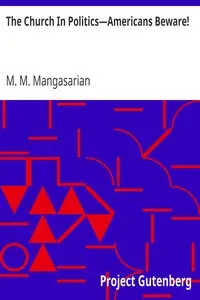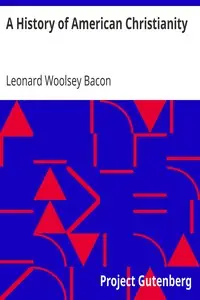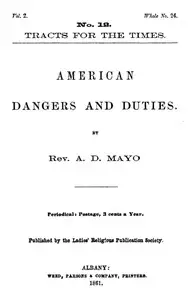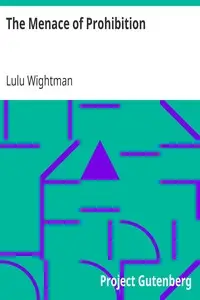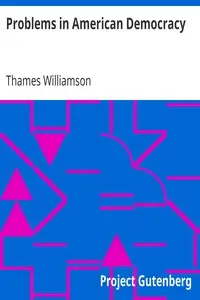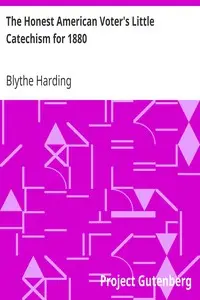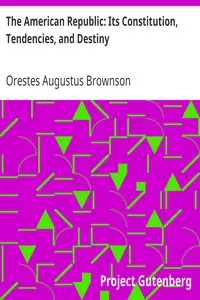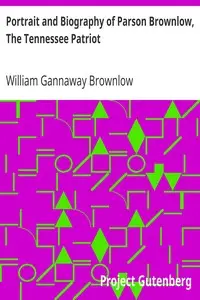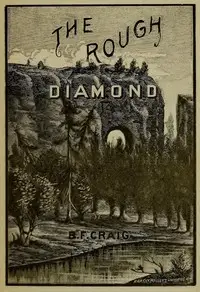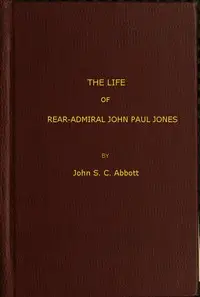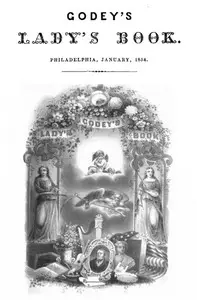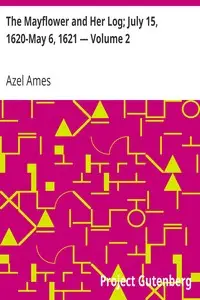"Americanism Contrasted with Foreignism, Romanism, and Bogus Democracy" by William Gannaway Brownlow is a fiery political argument from the 1800s where the author, a newspaper editor and important figure in Tennessee politics, strongly disagrees with the increasing power of Catholicism and people from other countries in American democracy because he believed they endangered the country's freedom and religious beliefs. The book calls out political groups that support these outside influences at the expense of traditional Protestant values and American pride. The book starts with a serious warning, as Brownlow speaks to the young men of America, telling them they must protect their freedoms during a dangerous time for the country. He links the growth of Catholicism with what he names "Bogus Democracy," accusing them of being traitors to American values. Brownlow is sure that foreign influences and the Catholic Church are plotting to bring down American society, and he demands everyone be watchful and ready to defend the nation from this menace.
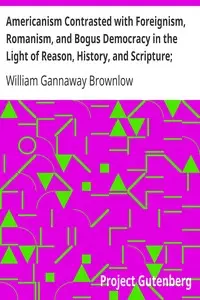
Americanism Contrasted with Foreignism, Romanism, and Bogus Democracy in the Light of Reason, History, and Scripture; In which Certain Demagogues in Tennessee, and Elsewhere, are Shown Up in Their True Colors
By William Gannaway Brownlow
In a time of perceived threats, a nation is called to defend its values against the insidious creep of foreign influence and religious corruption.
Summary
About the AuthorWilliam Gannaway "Parson" Brownlow was an American newspaper publisher, Methodist minister, book author, prisoner of war, lecturer, and politician who served as the 17th governor of Tennessee from 1865 to 1869 and as a United States Senator from Tennessee from 1869 to 1875. Brownlow rose to prominence in the late 1830s and early 1840s as editor of the Whig, a polemical newspaper in East Tennessee that promoted Henry Clay and the Whig Party ideals, and also that repeated Brownlow's opposition to secession by the southern slave states in the years leading up to the American Civil War. Brownlow's uncompromising and radical viewpoints made him one of the most divisive figures in Tennessee political history and one of the most controversial Reconstruction Era politicians of the United States.
William Gannaway "Parson" Brownlow was an American newspaper publisher, Methodist minister, book author, prisoner of war, lecturer, and politician who served as the 17th governor of Tennessee from 1865 to 1869 and as a United States Senator from Tennessee from 1869 to 1875. Brownlow rose to prominence in the late 1830s and early 1840s as editor of the Whig, a polemical newspaper in East Tennessee that promoted Henry Clay and the Whig Party ideals, and also that repeated Brownlow's opposition to secession by the southern slave states in the years leading up to the American Civil War. Brownlow's uncompromising and radical viewpoints made him one of the most divisive figures in Tennessee political history and one of the most controversial Reconstruction Era politicians of the United States.

